Technology for social good: Digital Social Innovation

The technology for social good, or “digital social innovation” movement is happening across Europe and the world. And it’s at the intersection of technology and new media, which has redefined our understanding of human progress.
A growing movement of innovators in civil society, tech and social entrepreneurs are now developing inspiring digital solutions for a variety of social issues. Solutions cover areas such as health, democracy, consumption, money, transparency, and education. We call this Digital Social Innovation (DSI).
The most promising DSI projects are the ones combining novel technology trends such as open data, open hardware, open networks, and open knowledge in new ways to achieve social impact.
Europe is supporting Digital Social Innovation with a variety of initiatives. As such, the European Commission has been funding DSI initiatives since 2014, well before it became a buzz, and Martel has been involved from the start.
Martel makes social innovation happen
The Collective Awareness Platform for Sustainability and Social Innovation (CAPS) programme funded over 40 projects between 2013 and 2020. The projects developed and utilised ICT technologies to tackle environmental, social and ethical challenges. Issues addressed span from decarbonisation to more sustainable car usage habits and road maintenance policies, from urban cohesion to open democracy, from transparent finance to community radios.

Martel’s Monique Calisti advertises the DSI Manifesto
Martel is proud to be at the centre of this amazing multidisciplinary community. For the past two years, we led the ChiC project, a coordination action. ChiC worked to maximise the impact, awareness and cross-pollination of CAPS projects. As such, ChiC helped communicate and create value among what are often intangible assets enabled by EC funding.
The two editions of the DSI Fair in Rome (organized by the ChiC project) gave the Digital Social Innovation and CAPS community an opportunity to share experiences, roadblocks and achievements and reflect upon sustainability on the long run. The events website offers a multimedia archive with presentations, interviews and recorded sessions. The CAPS portal is the entry point to a world of scientific, technological, academic and communication outputs that will enable further exploitation of each and every project involved. It also gives visibility to a group of researchers, community leaders, social innovators, NGOs and SMEs using technology to exploit human potential.
Funding for digital social innovation
While the CAPS program has now completed its funding cycle and finished, new EC funding opportunities are arising. Right now, Digital Social Innovators can exploit the funding opportunities offered by the European Innovation Council (EIC) pilot. These include:

Workshop at the DSI Fair
- The Blockchain for Social Good Prize, where the challenge is to is to develop scalable, efficient and high-impact decentralised solutions to social innovation challenges leveraging Distributed Ledger Technology (DLTs)
- The Affordable High-Tech for Humanitarian Aid prize, where participants are called to develop innovative solutions for the delivery of humanitarian aid based on frugal application of advanced technologies
- The European Commission’s Horizon Prize for Social Innovation will reward the best solutions for improving the travel mobility of older people. Applications by February 2019!
Digital Social Innovators should also monitor closely the SWAFS Work Programme, ‘Science with and for Society’ which is instrumental in building capacities and developing innovative ways of connecting science to society. SWAFS allows all societal actors (researchers, citizens, policy makers, business, third sector organisations etc.) to work together. And this collaboration happens during the whole research and innovation process. As such, it aligns both the process and its outcomes with the values, needs and expectations of European society. This approach to research and innovation is called Responsible Research and Innovation (RRI).
Open science, open innovation and NGI

EU commissioner Carlos Moedas
The European Commissioner for Research, Science and Innovation, Carlos Moedas, (who labels himself a techno-optimist) said in a speech in July 2018 at the Euro Science Open Forum 2018: “Innovation today is about purpose… In the European Union, we are going to put more money into social innovation. Not because it’s trendy, but because we believe that the future of innovation is about social innovation. The upcoming EC Framework Programme Horizon Europe must be more than a science programme; it needs to be the cornerstone for a new ‘social contract’ between citizens, governments and science. We have proposed a budget of €100 billion for science and innovation in Horizon Europe. The biggest ever. And with that 100 billion euro we have three main objectives: Open Science, Open Innovation, Global Challenges.”
The Next Generation Internet (NGI) initiative, launched by the European Commission in the autumn of 2016, aims to shape the future internet as an interoperable platform ecosystem that embodies the values that Europe holds dear: openness, inclusivity, transparency, privacy, cooperation, and protection of data. The NGI will drive this technological revolution by pushing a human-centric agenda. Technologies NGI is working with span the domains of artificial intelligence, Internet of Things, interactive technologies and more.
At Martel we have been involved in the Next Generation Internet (NGI) since its inception. Martel led the HUB4NGI project and we are now kicking off a new project, NGI4ALL. The latter will act as the marketing and communication agency for the NGI initiative, The NGI Outreach Office (NGIO). We are already at work with our partners to create the third NGI Forum in 2019. And, in a few weeks, we will bring the NGI to the spotlight, presenting it at the 4YFN Conference and at Mobile World Congress in Barcelona.
 Horizon Europe
Horizon Europe



